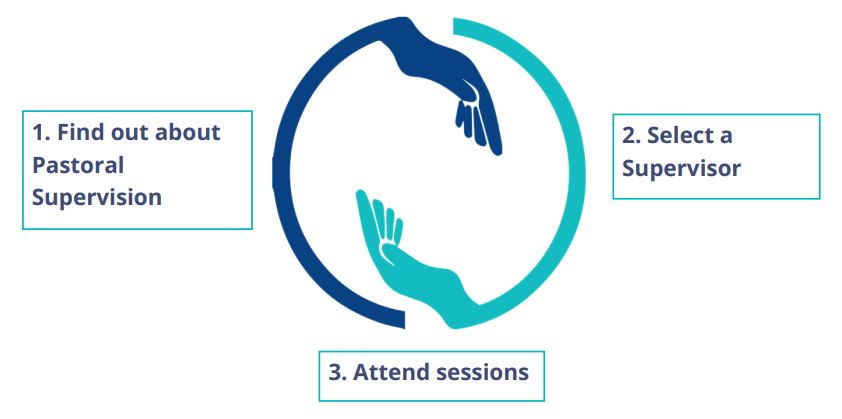Clergy are invited to take part in Pastoral Supervision that provides peer-to-peer support
As part of our commitment to clergy care and well-being, we offer one-to-one Pastoral Supervision. Clergy can sign up for individual sessions with a trained supervisor of their choice, where they have a safe space to share their day-to-day challenges, experiences, and reflect upon their current mission and ministry.
Pastoral Supervision enables clergy to reflect on past work experiences in the present for the sake of the future. It helps individuals better understand how their character shapes their ministry, leading to improved well-being and effectiveness. Pastoral Supervision sessions scheduled between yourself and your supervisor at mutual convenience.
You can meet some of our trained supervisors and learn a little bit more about pastoral supervision by clicking on the biographies below. You are invited to register by submitting a self-referral form to the supervisor of your choice. The process for taking part in pastoral supervision is outlined in the diagram below.

Bishop David hopes that clergy will feel this is something they want to take advantage of. He says: “For me this is a very important part of how we care for the wellbeing of our clergy and is part of our commitment to see that we can flourish and thrive in ministry. It’s important that we have places where we can take some of those difficult conversations that we’ve had and unload, share and gain from the wisdom of each other. I really do believe in peer-to-peer learning and peer-to-peer support. It’s a great way, not only to help each other, but also to develop and hone our own skills as well.”
Liz Crumlish, Associate of the Institute of Pastoral Supervision and Reflective Practice (IPSRP), says “Supervision is a facilitated, intentional and sustained conversation between a person’s Soul, Role and Context, in which attention is paid to the worker, the work and those impacted by the work.”
Pastoral Supervisors
|
Area |
Supervisor |
Location |
Book here |
|
Bury |
Julian |
Request to join the group with Julian Heaton |
|
|
Ashton |
Denise |
|
|
|
Saddleworth |
Hilary |
Click here for details |
Request to join the group with Hilary Edgerton |
|
South Manchester |
Stuart McPhail |
16 Lock Lane Partington M31 4PX |
Request to join the group with Stuart McPhail https://forms.gle/QimNbXshPHN85JZH9
|
A note from your Pastoral Supervisors
We use our words and create space to listen, but also perhaps incorporate other creative means to help us all think differently.
We, the Supervisors are all fellow clergy from here in Manchester, who have been trained in this form of supervision and still engage with our own supervision on a group and 1:1 basis. We are not here to act as experts with answers, but as facilitators who can help guide you to determine those next steps, when the way ahead seems uncertain.
Manchester Diocese is taking steps to establish a culture where a pattern of pastoral supervision becomes accepted practice for our clergy. The programme of work has been developed in line with the Covenant for Clergy Care and Wellbeing which was agreed by General Synod in 2019 and follows a debate at Diocesan Synod in June 2021.